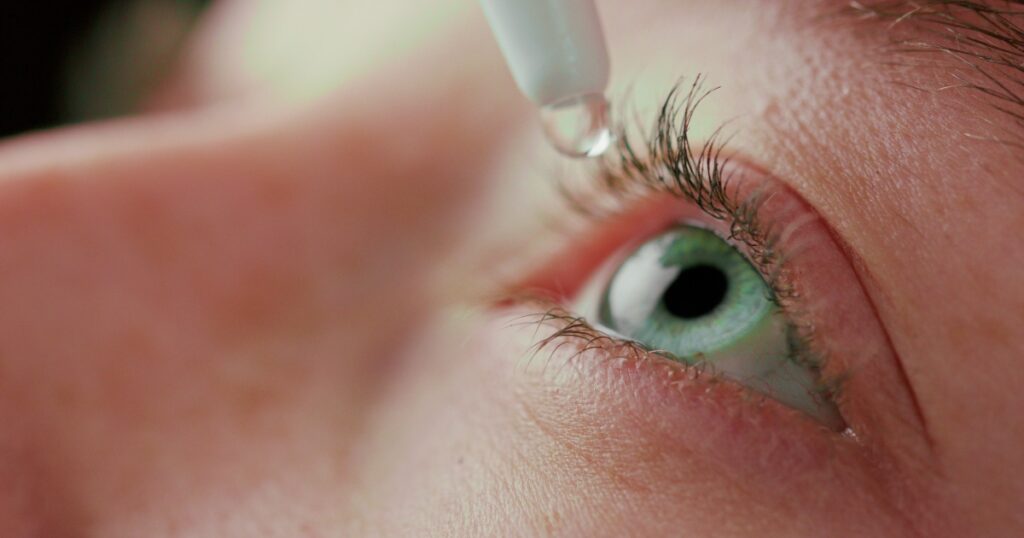
Most of us suffer from Dry Eye Disease, especially in the cold winter months.
Winter weather means lower humidity, colder winds, and stuffy indoor heat. This combination can make for conditions that irritate your eyes. Moisture evaporates more quickly, so you may notice grittiness, irritation, and a stuck feeling.
The good news is that simple measures can help ease the discomfort of winter dry eye. Here at Hannes Zwarts Optometrists, we recommend the following:

1. Add humidity
A humidifier added to your bedroom, living areas, and office can go a long way in restoring valuable moisture to heated air. Some in-house systems are available, too, but a portable machine to add humidity to the air where you spend the most time can effectively lubricate your eyes and reduce gritty dryness.
2. Don’t sit in front of heat
When you’re in the car, direct the heat toward your body — not your face. Even the defroster can bounce air off the windshield and contribute to eye dryness. Try defrosting before you start driving.
This goes for space heaters around your desk or favorite chair, too. And if you’re around an open fire, protect your eyes from overuse because smoke from a wood-burning fire accelerates the evaporation of tears from your eyes. Position yourself some distance from the flames.
3. Protect your eyes from wind and cold
A good pair of sunglasses isn’t just for the beach. Your eyes get protection from the sun and drying winds of winter by wearing a quality pair of glasses with sun protection. We can help you find just the right pair. A hat with a visor can offer further protection.
4. Drink water and other fluids
Stay hydrated to maintain moisture in your eyes. You may not feel as thirsty in winter, but drink plenty of fluids to keep your membranes moist. Water is a good choice, but other sources of fluid — such as fresh fruit, juice, and herbal tea — also help keep you hydrated.
5. Manage screen time
Dry eyes, in winter and at other times, are exacerbated by excessive screen time. When you’re using your phone, computer, tablet, or other digital screen, take regular pauses.
Sitting in front of a screen causes you to blink less, which means fewer tears distribute over your eyeballs. Look away every 20 minutes as a good rule. When you do pause, gaze at something about 20 feet away for 20 seconds to encourage blinking. It’s easy to get wrapped up in what you’re doing and forget to take these breaks, so set a timer if you have trouble remembering on your own.
And, if at-home measures don’t work to reduce your discomfort or you experience dry eyes year-round, make an appointment at our practice for a more thorough evaluation of your dry eyes. We also offer punctal plugs to help control excess tear drainage. Feel free to contact the practice or schedule an appointment online to set up your consultation.
Source: veyep2000
